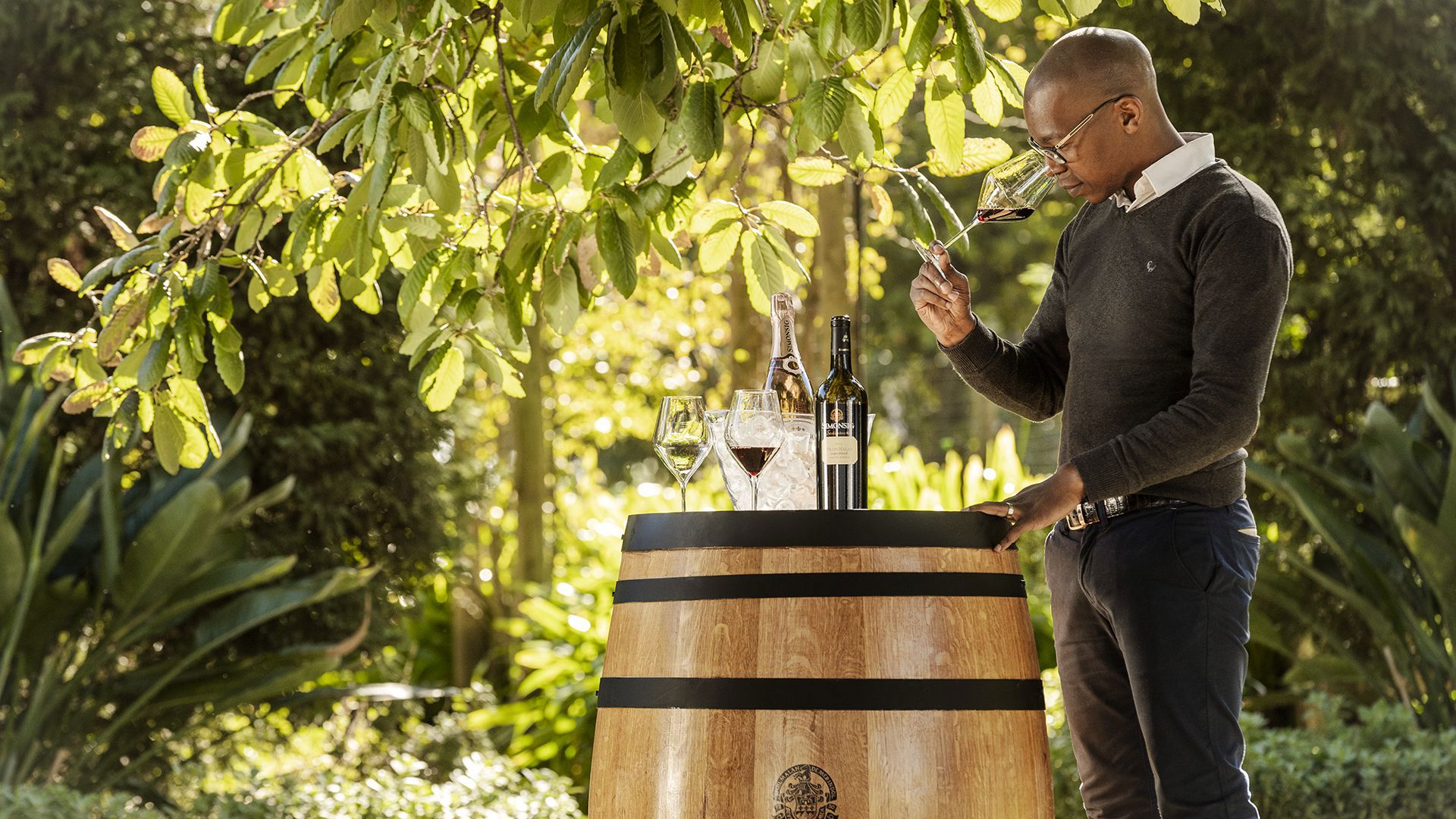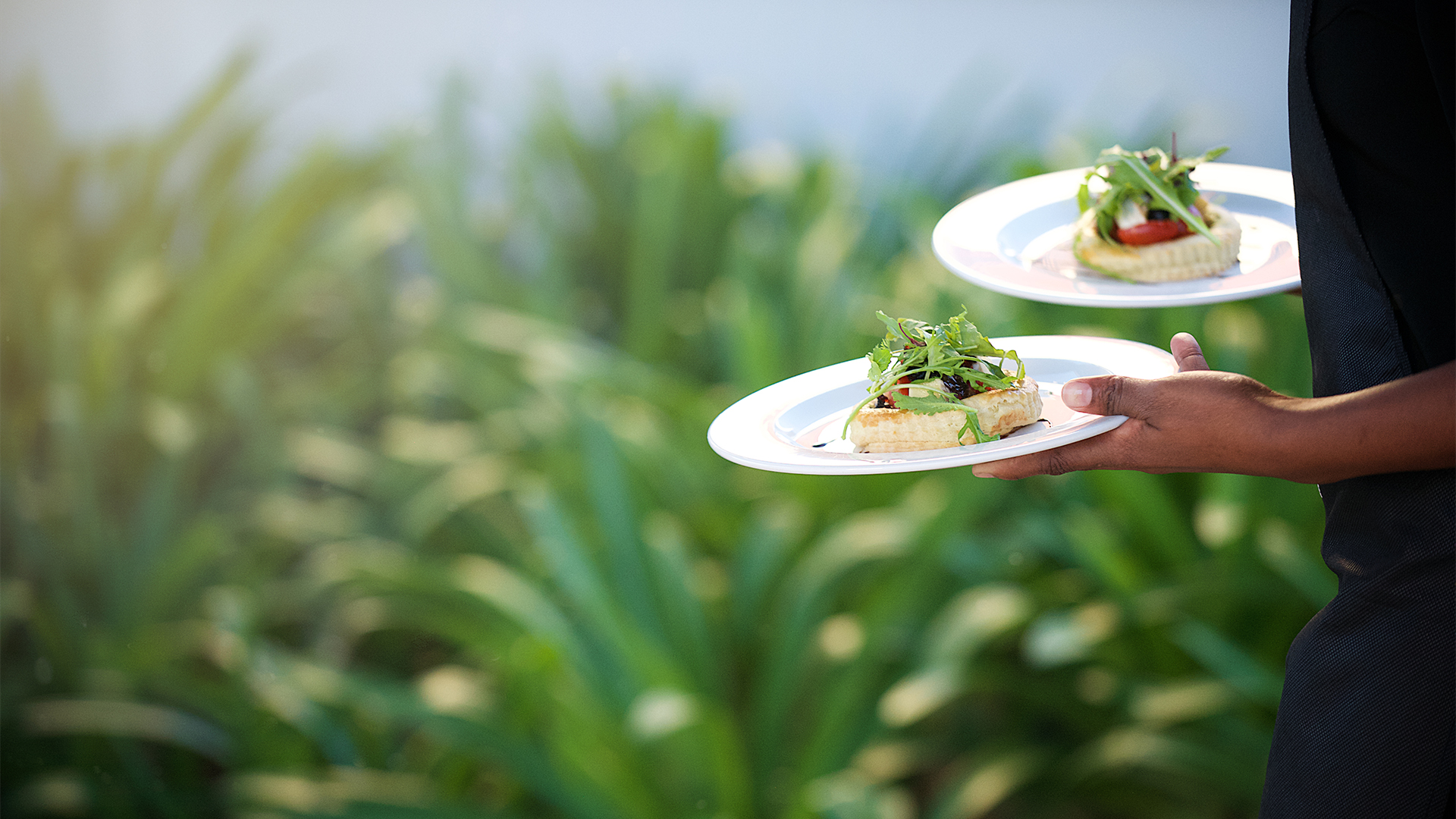- Experiences & Adventure
- Nature

From secret supper clubs to experimental fine dining, transcend stereotypes on a bespoke gourmet voyage to find the freshest flavours in South Africa’s most fertile pockets.
South Africa’s cuisine is as smoking hot as its world-famous braai, but its best bits are beyond the barbecue-and-biltong clichés.
You might often hear the Arabic word, ‘Barakat’, said in relation to food here, which translates as ‘blessing’. Originally, the word referred to the edible blessing of fruit offered after prayer by South African Muslims but has since become slang for ‘takeaway’. Barakat embodies the complexity, diversity and sense of community baked, grilled and marinated into South Africa’s food, which draws on a fragrant, fascinating mix of Dutch, Indian and Cape Malay ingredients and recipes. Just one taste of it and you’ll be whole-heartedly and inextricably linked to it too.
At the heart of South African cooking is family-style communal dining and handmade food – the kind that you’ll want to take home (remember Barakat?). Authentic hospitality is hard to fake, but you’ll find it in its purest form when you’re welcomed into Nicky Gibbs’ home. As she chatters and chops, you’ll learn how she turned her house into the Crofters Kitchen, a place where she farms, forages and finesses her home-grown ingredients.
Sink into a warm buzz around one big table, as you and 13 other hungry mouths reach for slices of hot biltong-spiced ostrich rump and bowls of steaming Noordhoek mushroom risotto garnished with garlic blossom. Conversation will never run dry with the inspiring panorama that stretches past the decking outside, from the craggy mountain of Chapman’s
Peak to the calming basin of Lake Michelle.
A new generation of restaurateurs has been heading to the coastal capital of Cape Town, and with them a renewed respect for native flavours and recipes passed down orally for generations. The heady fragrance of smoked Amasi cheese and curried onions will lead you to Ukutya, a dining concept that puts the party into supper party and celebrates South Africa’s indigenous ingredients – such as roast amadumbe (a root vegetable grown in the wetlands) and warm iimbaza (mussels) soup. Fine dining has a fun, more informal spirit here.
Settle into front row seats at Salsify’s 13-course tasting menu filled with explosions of colour, from grapefruit-cured sashimi with hibiscus pickled radish to poached prawns atop chive gnocchi. There’s also Pier Restaurant where the attentive service will treat you as a VIP and theatrical touches, such as dishes cooked table-side and shells opened up to reveal boat-fresh seafood, delight and surprise all the senses at once.
Nearby, the Cape Winelands beckon, with grape growers, vine experts and seasoned sommeliers at hand to guide you through some of the finest wine-tasting in the country. It’s impossible to resist the passion that flows as freely as the wine at working farms such as La Motte or Leeu Estates, and it seeps into the property’s every pore, from its awe-inspiring art collection to its Vastu Shastra architecture.
As you become privy to stories that go back centuries, you can’t help but feel like you’re playing a small part in the history of viticulture and its vitality in the community. Franschhoek’s vintages are thought to be catching up with Stellenbosch’s starrier-eyed wine scene, so don’t forget to buy a few bottles to take home, so you can pass on the same stories to others who are keen to learn.
This proximity to the sea also feeds into an ecosystem in which pinot noir thrives, and you can taste the unique terroir in its red fruit flavours and wood-spiced undertones, all infused by a coastal breeze that refreshes the grapes and injects a light acidity. You’ll find one of the best collections in the cellars at Grootbos Private Nature Reserve.








